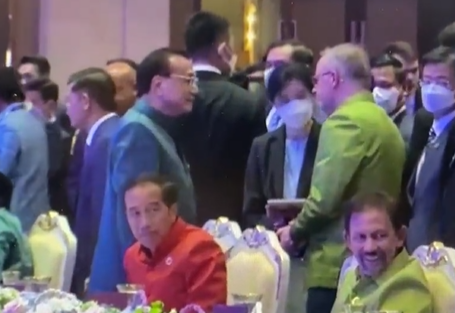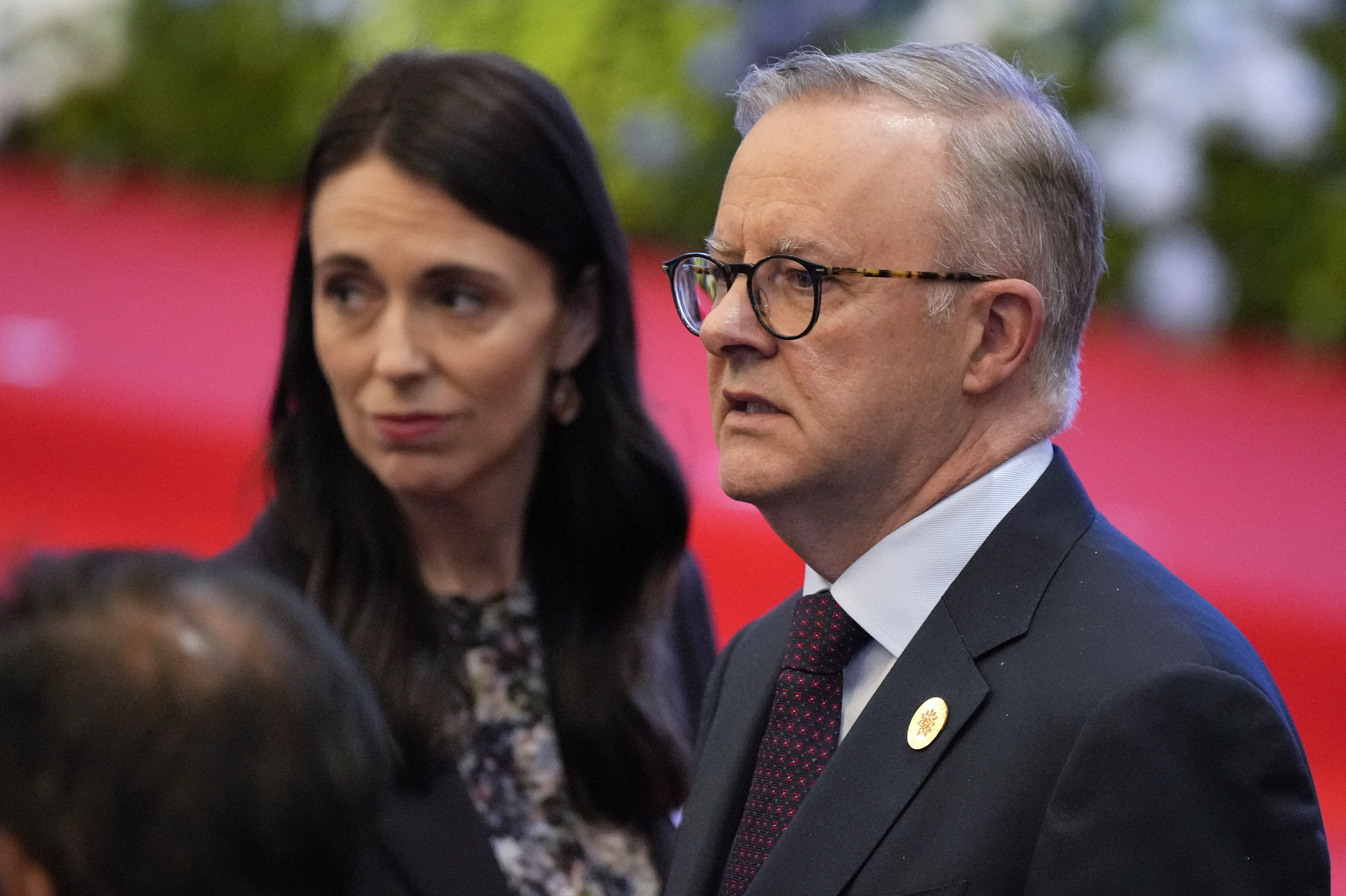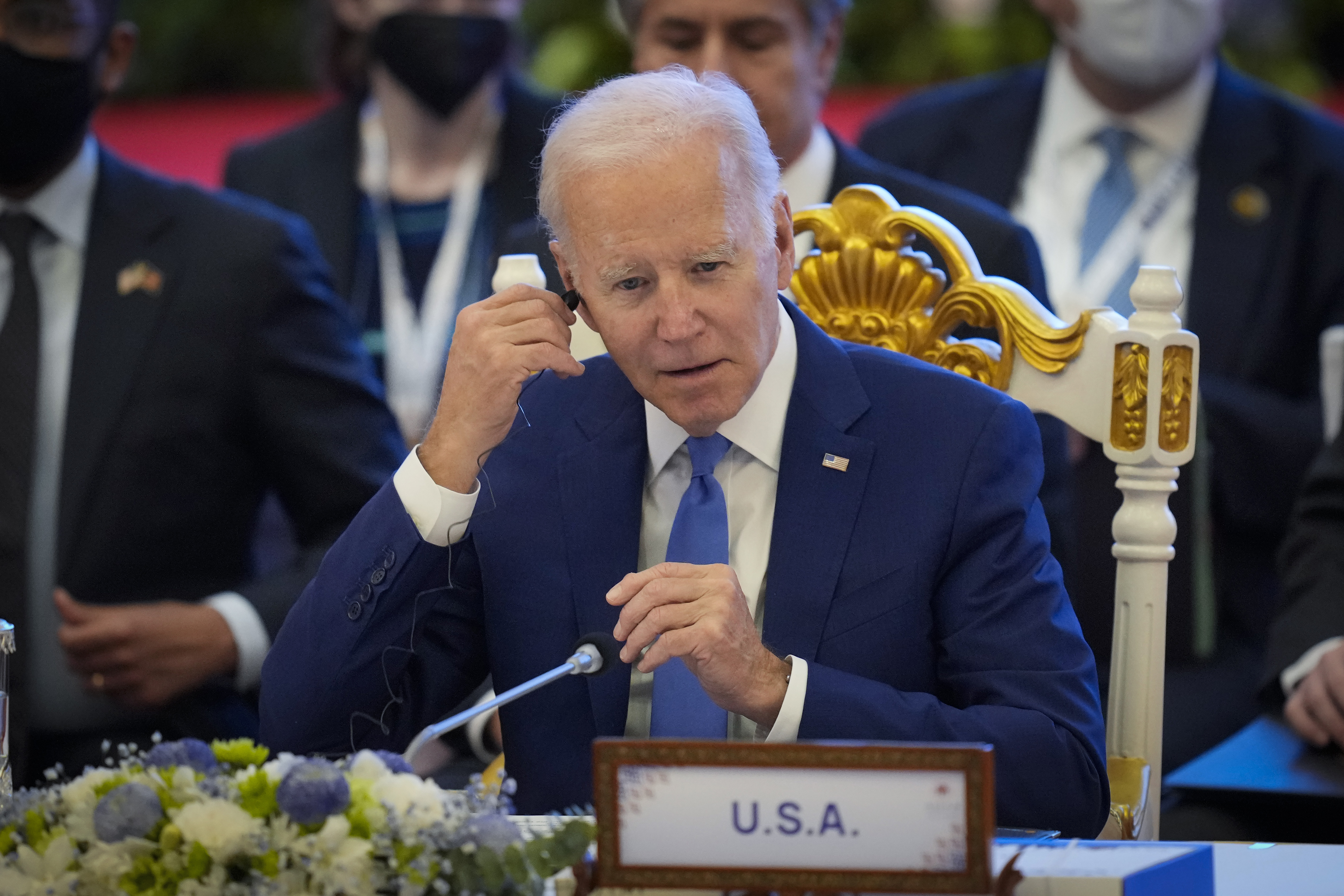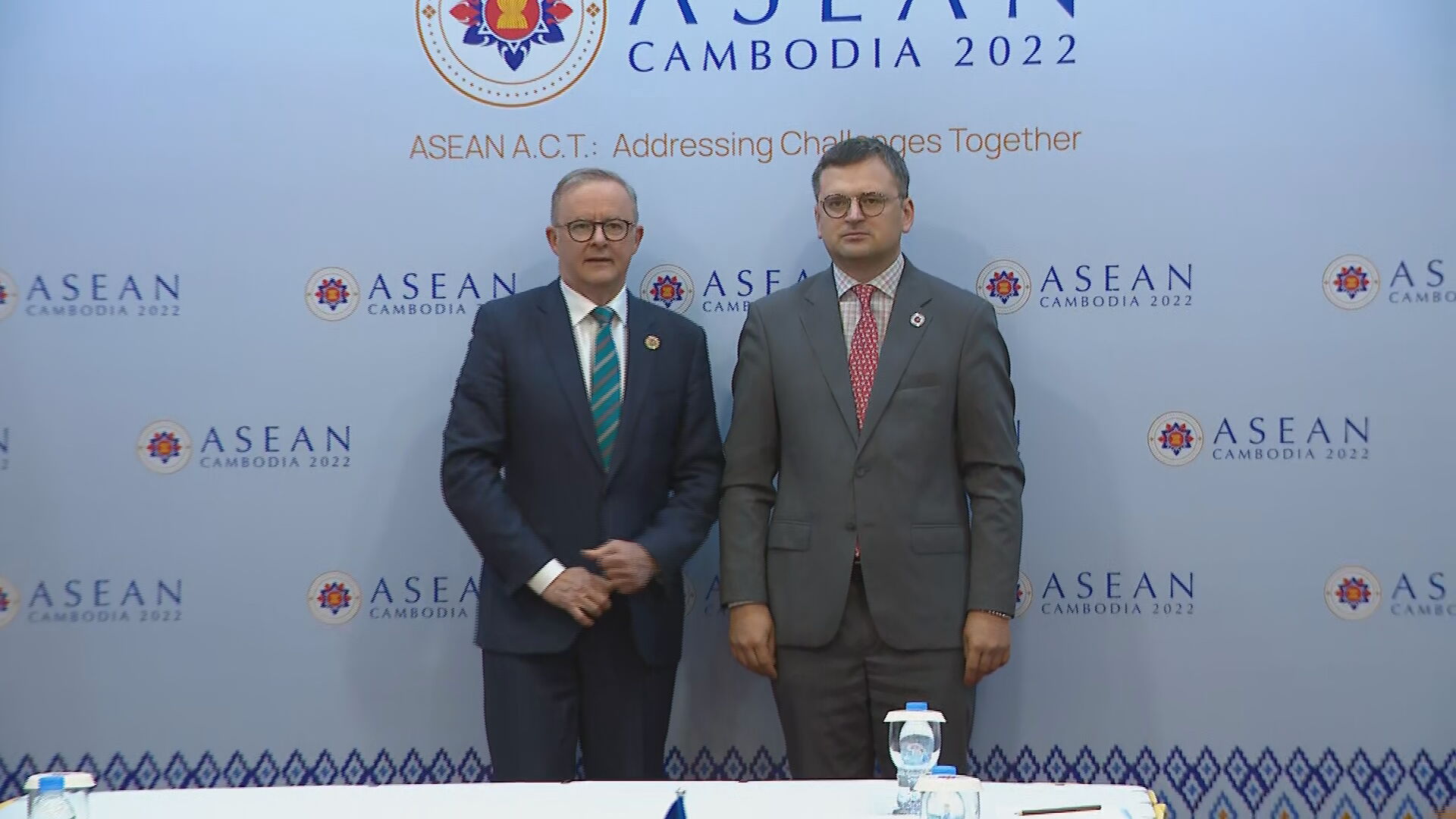Prime Minister Anthony Albanese has described his conversation with the Chinese premier on the sidelines of the ASEAN summit in Cambodia as "short" and "constructive".
In a new sign the severely strained relationship between Australia and China is getting back on track, Albanese said he had "very positive" chat with Premier Li Keqiang, the second most powerful man in the country.
The pair spoke for two minutes through interpreters after arriving at the gala dinner in Phnom Penh, in what is the most significant meeting between Australia and China for three years.
READ MORE: What is shrinkflation? The sneaky way food companies are passing on cost increases to you
"I think it's a good thing that happened," Albanese said.
"I've said repeatedly about the relationship with China, that we should cooperate where we can, and that dialogue is always a good thing. And last night's dialogue was very positive."
The prime minister said the main discussion was about the upcoming 50th commemoration of Australia's diplomatic relationship with China.
Leaders from across the Indo-Pacific are meeting alongside a summit of Association of Southeast Asian Nations (ASEAN) leaders, followed next week by a meeting of the Group of 20 (G20) leaders in Bali and of the Asia-Pacific Economic Cooperation forum in Bangkok.
Albanese's meeting with Li sparked hope among other Australian politicians of a softening of the rising tensions between the two countries.
"I hope he can meet with the Chinese president. That would be a good thing for our nation," Nationals leader David Littleproud said.
Albanese is still hopeful for a meeting with China's president Xi Jinping at the G20 summit on Monday.
https://twitter.com/ElizaEdNews/status/1591598095871414272
Albanese also met US president Joe Biden at the summit during formal sideline bilateral talks.
Biden will have a highly anticipated meeting with Chinese President Xi Jinping on Monday.
The ASEAN summit is an opportunity for members of the 10-country bloc and others to discuss peace plans and solutions to rising tensions in the south-east Asia region.
The summit's official priorities of health, sustainable energy and digital transformation are likely to be overshadowed by fears of a sputtering global economy and geopolitical tensions centred on the war in Ukraine.
US president pledges to work with south east Asian nations
One of those discussions included when Biden pledged the US would work with a strategically vital coalition of southeast Asian nations, telling leaders that "we're going to build a better future that we all want to see" in the region where US rival China is also working to expand its influence.
https://twitter.com/AlboMP/status/1591657627309998082?ref_src=twsrc%5Etfw
"I look forward to continuing our work together with ASEAN and with each one of you to deepen peace and prosperity throughout the region to resolve challenges from the South China Sea to Myanmar and to find innovative solutions to shared challenges," Biden said.
READ MORE: Democrats will keep control of the Senate
The US is at odds with China over a host of issues, including human rights, technology and the future of the self-ruled island of Taiwan.
Biden said he plans to talk with Xi about topics including Taiwan, trade policies and Beijing's relationship with Russia.
"What I want to do … is lay out what each of our red lines are," Biden said last week.
'Russia should – must – stop playing hunger games with world'
Despite rising tensions between China and the rest of the world, the war between Russia and Ukraine rages on – becoming a focal point for peace talks at the summits.
Cambodian leader Hun Sen called for unity, telling a gathering including Russia, China and the United States that current global tensions have been taking a toll on everyone.
The prime minister, whose country holds the rotating chair of the Association of Southeast Asian Nations, said at the opening of the East Asia Summit that it was in the world's common interest to cooperate to solve differences peacefully.
The comments come as regional tensions remain high between the United States and China over Taiwan and Beijing's growing regional aspirations, and while the Russia invasion of Ukraine has disrupted global supply chains, causing rising energy and food prices far beyond Europe.
Without singling out any nation by name, Hun Sen said he hoped leaders would embrace a "spirit of togetherness in upholding open and inclusive multilateralism, pragmatism and mutual respect in addressing the existential and strategic challenges we all face."
"Many current challenges and tensions have been hindering our past hard-earned efforts to promote sustainable development and causing greater hardship to people's lives," he said as he opened the meeting, which is running in parallel to the ASEAN group's main summit.
Ukraine's Foreign Minister Dmytro Kuleba asked yesterday for more political and material support from nations at the ASEAN summit to aid his country's fight against Russia.
He also accused Moscow of playing "hunger games" with the world by holding up shipments of Ukrainian grain and other agricultural products.
READ MORE: Warnings in place as massive 3000km rainband sweeps across country
Kuleba said that with a deal allowing Ukraine to export grain and fertiliser due to expire November 19, the world needed to pressure Russia not to object to its extension, saying Ukrainian products were critical in Africa and Asia.
Not only does Russia have "to remain part of the initiative, it also has to instruct its inspectors to act in good faith and to avoid any measures, any steps, that create obstacles and hinder the export of Ukrainian agricultural goods to the global market," he said.
Kuleba's country was invited to the ASEAN summit for the first time this year and signed a peace accord with the group of nations with a combined population of nearly 700 million people.
Source: 9News






